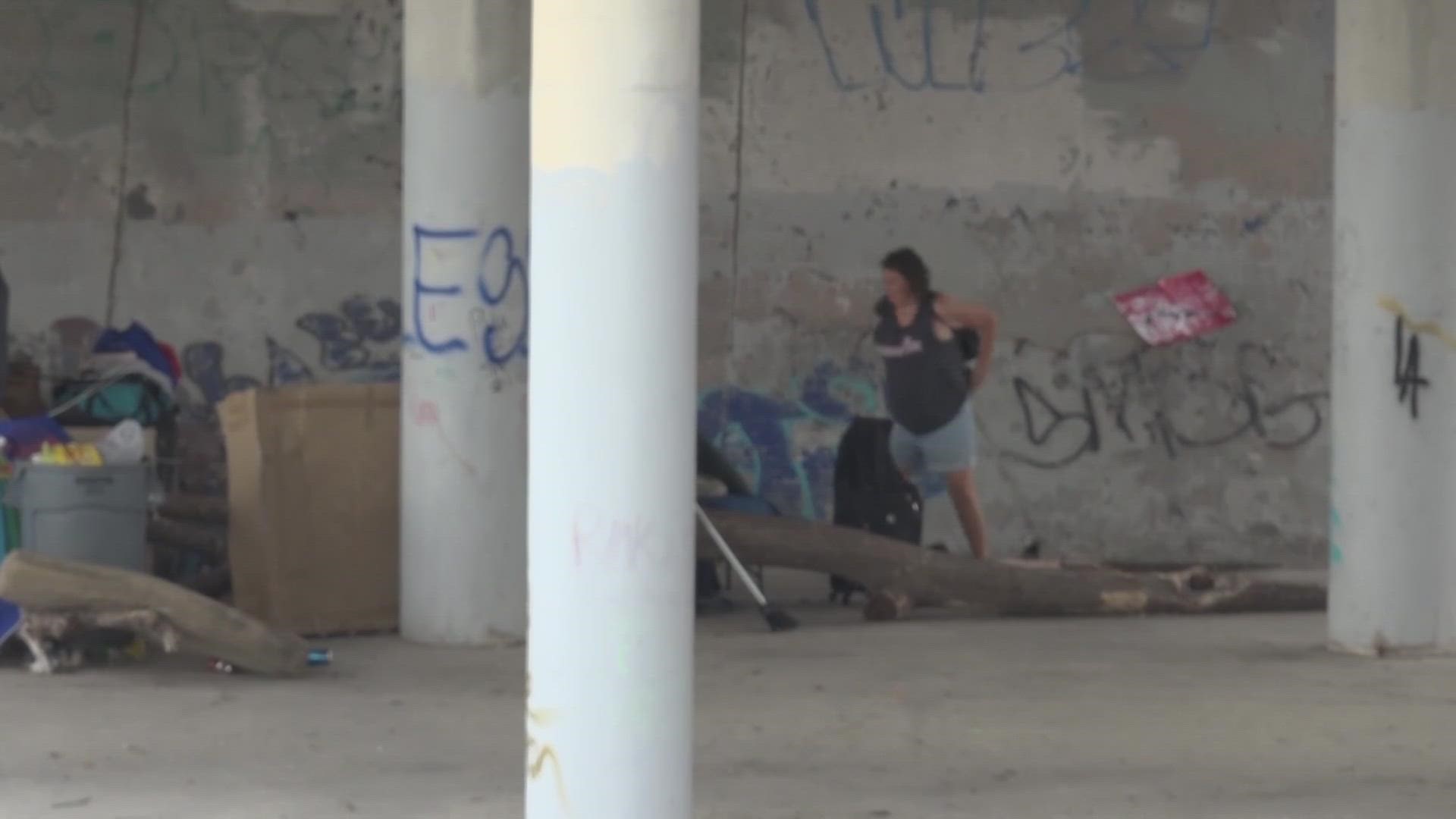SAN ANTONIO — Mari Salgado relies on the Catholic Worker House for more than just food and friendship.
Salgado is homeless. She said the day shelter, which serves those who are disabled or over age 50, is a safe haven where she can take advantage of many support services.
Salgado said finding a range of care is a blessing.
"It's the follow through and the follow up. It's not just leading a horse to water, it's kind of monitoring the situation. They have that here and thank God for Catholic Worker House," Salgado said, adding that identifying the real-life needs of people who are homeless is important work.
"We need more affordable housing and access to it. I believe the waiting list is eight years long. The San Antonio Housing Authority wait list is eight years long and it already seems hopeless and dire so we need a little bit of hope," Salgado said.
That dream may be a bit closer to coming true after the Point-In-Time Count event Tuesday evening, in which a record number of volunteers will fan out across the city and county to collect data on the needs of people who are homeless.
Sponsored by SARAH, the South Alamo Regional Alliance for the Homeless, the group hopes to see about 300 volunteers show up to help with the effort, which will provide a snapshot of the challenges in the community.
They said the data they collect will help establish priorities in how to invest public dollars.
The volunteers will be searching for homeless people in 72 separate grids and they will ask them to answer a series of survey questions.
To make the proposal attractive, they will be handing out care packages with snacks, bottled water, N95 masks and hygiene items.
Katie Vela is the Executive Director of SARAH. Vela said because voters recently approved $25 million in permanent supportive housing dollars, the data they collect will focus on the best way to move forward.
"For people who are unsheltered, they are going to need on site services: somebody to help with medication management, case management, transportation to key health services, so that's really what we're looking at, permanent supportive housing and where that can be located throughout the community," Vela said.
Vela said they hope to release summaries of the data they collect by May.

